Ep. 75: Teresa Ish, Program Officer of the Environment @ The Walton Family Foundation ||
On Sourcing Matters episode 75 we welcome Teresa Ish – Oceans Initiative Program Officer at The Walton Family Foundation. Ish manages grants in the Environment Program that leverage the power of the supply chain to advocate for more sustainable fisheries.
Weeks prior to recording I had the opportunity to meet with Ish at the Seafood Expo North America (SENA) in Boston. Teresa provided a walking tour of the SENA floor – introducing us to three change agents in the future of fisheries:
- Casey Marion – the Director of Sustainability Initiatives for Quality Management for Florida based Sea Best. Casey shared with us some of the systems they’ve introduced to better understand sophisticated supply chains in global fisheries.
- Mauricio Orellana – a leader in the Octopus fishery on the Yucatán Peninsula in Mexico. We learn first hand about this unique example of a future responsible fishery built to service its community of fisherman through first appreciating its resources. – We also learn a bit more about the soul of an Octopus.
- Our final stop was in my native New England waters. We learn from Richard Stavis – of the iconic brand, Stavis Seafood; Luke Holden – founder of Luke’s Lobster; Dick Jones of Ocean Outcomes, and Sean Murphy of Sustainable Fisheries Partnership. This gathering was focused on trends in fisheries and seafood sourcing – on advancements which are better meshing with modern consumer interests.
TuneIn to hear what a leading foundation
is doing to protect our seas; our future!
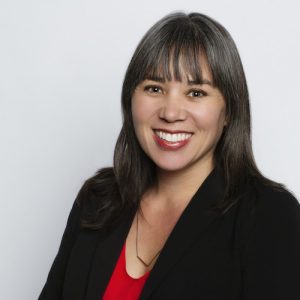 BIO: Before joining the foundation, Teresa Ish was the seafood project manager for the Corporate Partnerships Program at Environmental Defense Fund, where she worked with leading seafood buyers to develop and implement sustainable seafood purchasing policies. During her tenure at EDF, she played an instrumental role in merging the organization’s seafood buyer work and its extensive experience in the fishery policy arena. Prior to joining EDF, she co- founded FishWise and served as its director of science.
BIO: Before joining the foundation, Teresa Ish was the seafood project manager for the Corporate Partnerships Program at Environmental Defense Fund, where she worked with leading seafood buyers to develop and implement sustainable seafood purchasing policies. During her tenure at EDF, she played an instrumental role in merging the organization’s seafood buyer work and its extensive experience in the fishery policy arena. Prior to joining EDF, she co- founded FishWise and served as its director of science.–


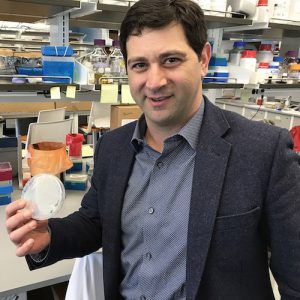 Accounting for over 50% of total seafood sourced, aquaculture has developed some scale issues.. It’s not as simple as saying that we’ll continue to move in the direction of farming more fish. It’s not just about the higher trophic level fish we consume. The issue is that much of the aquaculture infrastructure is reliant on pulling from the smaller fish in the sea – to feed the larger fish we consume. The alternative feedstuff for our aquaculture fish can also often soy, or other crops grown on land using input-based conventional practice leading to an unsustainable perpetual cycle of robbing Peter to pay Paul.
Accounting for over 50% of total seafood sourced, aquaculture has developed some scale issues.. It’s not as simple as saying that we’ll continue to move in the direction of farming more fish. It’s not just about the higher trophic level fish we consume. The issue is that much of the aquaculture infrastructure is reliant on pulling from the smaller fish in the sea – to feed the larger fish we consume. The alternative feedstuff for our aquaculture fish can also often soy, or other crops grown on land using input-based conventional practice leading to an unsustainable perpetual cycle of robbing Peter to pay Paul.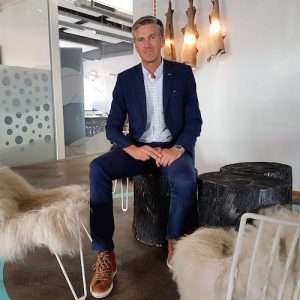 Beginning with the Ocean Cluster House in Reykjavik harbor – The Iceland Ocean Cluster is now pooling together satellite locations in coastal cities of the US, and eventually the World – in effort to work in unison in tackling many of the biggest problems facing our shrinking planet. Each cluster site will be filled with like minded entrepreneurs and a business ecosystem to support and invest in a replicable model for a modern marine innovation economy. During our 40 minute conversation we learn that fishing communities around the globe have many similar fish-to-fry. We learn that there are fundamental problems with an antiquated seafood industry, and in dealing with our warming Oceans which need new perspective – now!
Beginning with the Ocean Cluster House in Reykjavik harbor – The Iceland Ocean Cluster is now pooling together satellite locations in coastal cities of the US, and eventually the World – in effort to work in unison in tackling many of the biggest problems facing our shrinking planet. Each cluster site will be filled with like minded entrepreneurs and a business ecosystem to support and invest in a replicable model for a modern marine innovation economy. During our 40 minute conversation we learn that fishing communities around the globe have many similar fish-to-fry. We learn that there are fundamental problems with an antiquated seafood industry, and in dealing with our warming Oceans which need new perspective – now!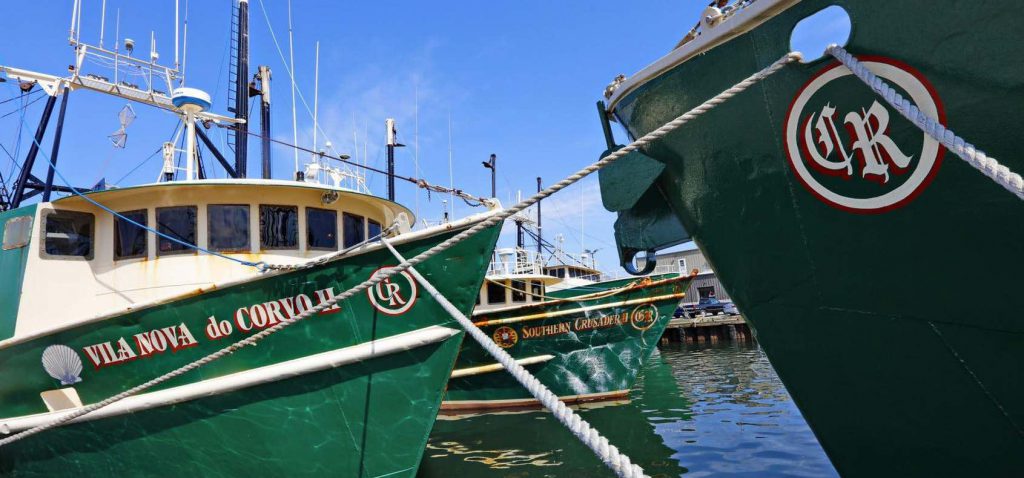
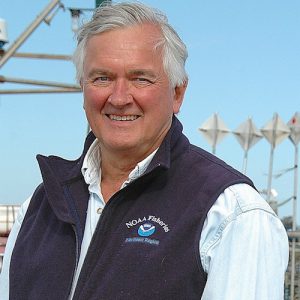 In episode 60 of Sourcing Matters John Bullard also shares some interesting stories about his roles prior to the Greater Atlantic Region at NOAA Fisheries. John Bullard (1) was past mayor of New Bedford, (2) he had a lead role at NOAA Sustainability within the Clinton administration, (3) he was past president of Sea Education Association, and as younger man he received a BA From Harvard and Masters in Architecture from MIT. An engaging dude with some interesting stories to tell. I hope our listening audience that are out on the water everyday listen to this conversation with John. You’ll be especially interested to hear his POV, and to learn whose corner he’s truly in. Tune-In
In episode 60 of Sourcing Matters John Bullard also shares some interesting stories about his roles prior to the Greater Atlantic Region at NOAA Fisheries. John Bullard (1) was past mayor of New Bedford, (2) he had a lead role at NOAA Sustainability within the Clinton administration, (3) he was past president of Sea Education Association, and as younger man he received a BA From Harvard and Masters in Architecture from MIT. An engaging dude with some interesting stories to tell. I hope our listening audience that are out on the water everyday listen to this conversation with John. You’ll be especially interested to hear his POV, and to learn whose corner he’s truly in. Tune-In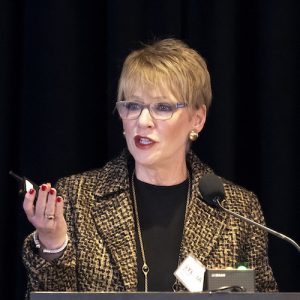 Prior to AquaBounty, Sylvia was President of StockYards, SVP of Merchandising, and President of the Manufacturing Division for US Foods. A $23 billion broad line foodservice distributor, US Foods is the the 2nd largest foodservice distributor in the US. Wulf was responsible for the P&L of the $10 billion protein and produce categories and the $1 billion Manufacturing Division of U.S. Foods Meat, Seafood and Produce operations. While leading this anchor division, Wulf developed a source to sale strategic approach that not only improved profitability but drove growth in market share at 3X the industry average. In her numerous roles responsibilities included the P&L of Perishables categories, centralized sourcing/replenishment, 15 manufacturing facilities for Meat and produce.
Prior to AquaBounty, Sylvia was President of StockYards, SVP of Merchandising, and President of the Manufacturing Division for US Foods. A $23 billion broad line foodservice distributor, US Foods is the the 2nd largest foodservice distributor in the US. Wulf was responsible for the P&L of the $10 billion protein and produce categories and the $1 billion Manufacturing Division of U.S. Foods Meat, Seafood and Produce operations. While leading this anchor division, Wulf developed a source to sale strategic approach that not only improved profitability but drove growth in market share at 3X the industry average. In her numerous roles responsibilities included the P&L of Perishables categories, centralized sourcing/replenishment, 15 manufacturing facilities for Meat and produce.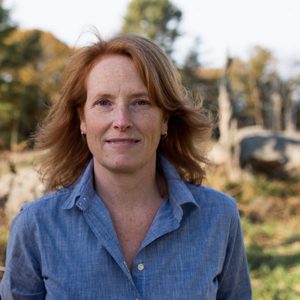 In our 45 minute conversation we discuss the ins and outs of investing in regional and sustainable food systems of the Northeast and beyond. CEI is a mission-driven lender and investor specializing in rural business development and financing. In Maine, and throughout the U.S., CEI helps to create economically and environmentally healthy communities in which all people, especially those with low incomes, can reach their full potential. CEI is unique with its dossier of offerings which include business loans, micro-loans, new market tax credits, sub-debt loans, SBA 504 loans, business plans, marketing plans, business advising, financial advising, and public policy leadership.
In our 45 minute conversation we discuss the ins and outs of investing in regional and sustainable food systems of the Northeast and beyond. CEI is a mission-driven lender and investor specializing in rural business development and financing. In Maine, and throughout the U.S., CEI helps to create economically and environmentally healthy communities in which all people, especially those with low incomes, can reach their full potential. CEI is unique with its dossier of offerings which include business loans, micro-loans, new market tax credits, sub-debt loans, SBA 504 loans, business plans, marketing plans, business advising, financial advising, and public policy leadership.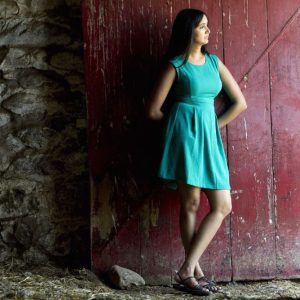 Faruqi’s previous work ‘Project Animal Farm’ was released in 2015. This non-fiction work looked at the world’s food system through chronicling a journey to 60 animal farms in 8 countries. Faruqi combines her hands-on immersive learning with analysis on modern global agricultural models. The well researched book comes in tow with recommendations, and food sustainability solutions for many of these international issues. She has some heavy hitters in food, agriculture and ocean health singing her praises.
Faruqi’s previous work ‘Project Animal Farm’ was released in 2015. This non-fiction work looked at the world’s food system through chronicling a journey to 60 animal farms in 8 countries. Faruqi combines her hands-on immersive learning with analysis on modern global agricultural models. The well researched book comes in tow with recommendations, and food sustainability solutions for many of these international issues. She has some heavy hitters in food, agriculture and ocean health singing her praises.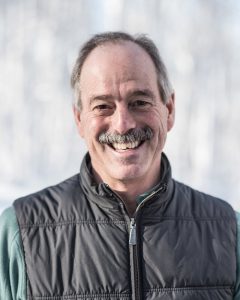 They’re surely good eating, but oysters represent so much good to their surrounds, the shared environments, and the communities they support. You see, each adult oyster filters 50 gallons of water daily, they restore keystone marine ecosystems, and they build protective reefs around susceptible coastal communities – protecting us from storm surge and severe weather events. In this 45 minute discussion Bill Mook goes into details describing why Oysters are so important to the stability of seas, and to our planet. As you’ll hear, Mook has implemented bleeding-edge R&D in his hatchery that is second to none. Innovations include development of methods for overwintering seed out of the water; a tidal powered nursery system; a vessel and gear for mechanizing the use of OysterGro™ cages; and a unique, energy efficient, and highly productive system for growing the micro-algae we use for food in the hatchery. Effectively his approach to “brew” feed for Oysters, or for other animals for that matter, sets to be revolutionary.
They’re surely good eating, but oysters represent so much good to their surrounds, the shared environments, and the communities they support. You see, each adult oyster filters 50 gallons of water daily, they restore keystone marine ecosystems, and they build protective reefs around susceptible coastal communities – protecting us from storm surge and severe weather events. In this 45 minute discussion Bill Mook goes into details describing why Oysters are so important to the stability of seas, and to our planet. As you’ll hear, Mook has implemented bleeding-edge R&D in his hatchery that is second to none. Innovations include development of methods for overwintering seed out of the water; a tidal powered nursery system; a vessel and gear for mechanizing the use of OysterGro™ cages; and a unique, energy efficient, and highly productive system for growing the micro-algae we use for food in the hatchery. Effectively his approach to “brew” feed for Oysters, or for other animals for that matter, sets to be revolutionary.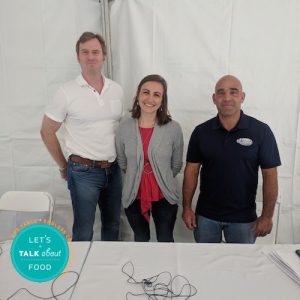 Sourcing Matters ep.
Sourcing Matters ep. 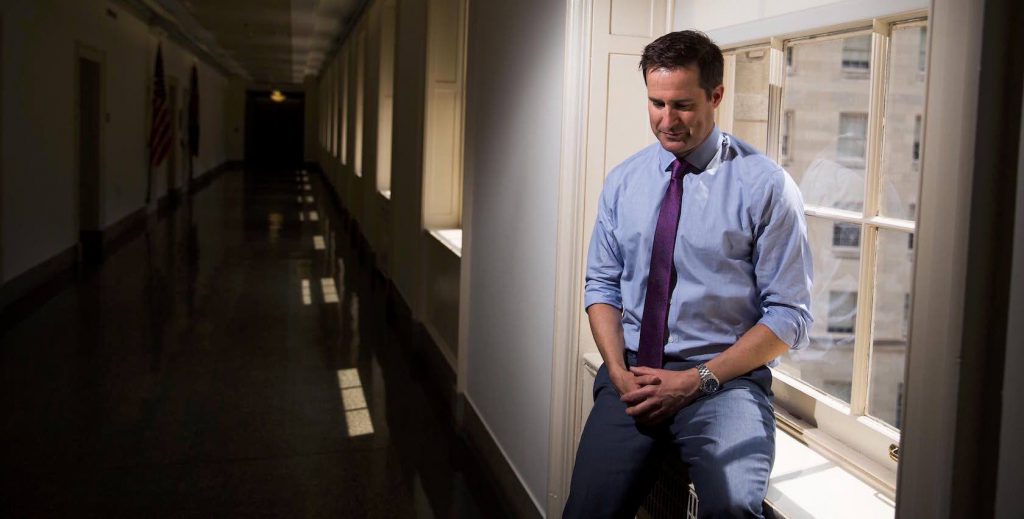
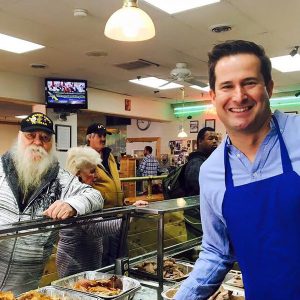 In our 30 minute conversation we evaluate the capacity of including fisherman and ocean farmers in future US Farm bills. For clarity, 80% of the resources of the proposed 2018 Farm bill will be allocated to SNAP (Supplemental Nutrition Assistance Program) aka. food stamps. This national program of a 1/2 of trillion dollars which arises every five years is in fact our shared domestic food plan, and it drastically under represents our population densities in coastal cities. The inclusion of fisheries & seafood not only adds a voice to the food plan for our largest populations, and guarantees more high-quality food for more in need of SNAP, but it gives our fisherman the same war chest to deal with impending environmental change as we currently employ with many terrestrial food producers. Effectively, we discuss how this pragmatic approach to introduce multiple returns to diverse stakeholders seems realistic under new and future leadership.
In our 30 minute conversation we evaluate the capacity of including fisherman and ocean farmers in future US Farm bills. For clarity, 80% of the resources of the proposed 2018 Farm bill will be allocated to SNAP (Supplemental Nutrition Assistance Program) aka. food stamps. This national program of a 1/2 of trillion dollars which arises every five years is in fact our shared domestic food plan, and it drastically under represents our population densities in coastal cities. The inclusion of fisheries & seafood not only adds a voice to the food plan for our largest populations, and guarantees more high-quality food for more in need of SNAP, but it gives our fisherman the same war chest to deal with impending environmental change as we currently employ with many terrestrial food producers. Effectively, we discuss how this pragmatic approach to introduce multiple returns to diverse stakeholders seems realistic under new and future leadership.